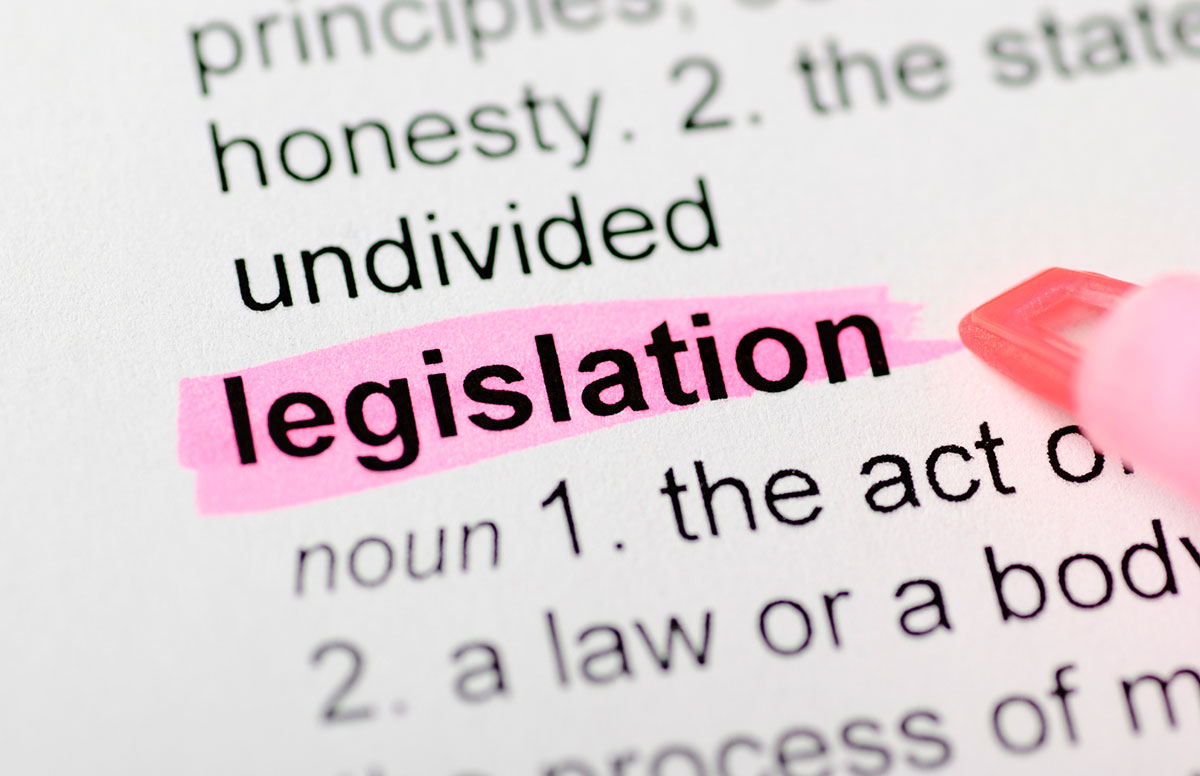Reopening to Visitors: A Review of States’ Guidance for AL
“Reopening” to Visitors
The States/ jurisdictions that have issued visitation guidance to Long Term Care Facilities that specifically include Assisted Living, include (as of this writing) are: Arkansas, California, Colorado, Connecticut, District of Columbia, Georgia, Indiana, Kentucky, Maine, Maryland, Massachusetts, Minnesota, Missouri, Montana, New Hampshire, New Jersey, New Mexico, New York, North Dakota, Nebraska, Ohio, Oregon, Pennsylvania, Rhode Island, South Carolina, South Dakota, Tennessee, Texas, Vermont, Virginia, Washington, and Wyoming.
While there are a few exceptions, these states are commonly requiring and/ or recommending the following:
- Outdoor Visits Only: With eleven exceptions, states are “reopening” visitation to Assisted Living in outdoor settings only. Parameters around such settings include ensuring that residents can safely travel to and from a designated outdoor setting, that the setting is protected from weather, sun exposure, and temperature changes, and that the setting is disinfected with cleaners that kill the coronavirus, in between visits.
- COVID-19 Requirements: The majority of states listed in this article will only allow the resumption of visitation provided that the community has no new cases of COVID-19, and provided that the residents and visitors who are participating have not tested positive for COVID-19 and are not showing any symptoms of COVID-19.
- Visitor Requirements: Each state’s guidance delineates specific criteria that visitors must meet in order to visit a family member in Assisted Living. These include:
-
- The visitor must be screened and symptom-checked for exposure to and/or symptoms of COVID-19.
- Visitors are limited in number (typically 2 or fewer) and visits must be scheduled in advance with the facility;
- Visitors should wear PPE and practice the universal COVID-19 precautions as put forth by CDC (washing hands, maintaining a six foot distance, avoiding physical contact);
- Some states restrict visitors by age (12 or older); others permit children to visit under supervision of parents, provided they abide by the other visitor requirements.
- Resident Requirements:
- Residents should be screened prior to the visit to ensure they are not exhibiting symptoms of COVID-19. (One state, Tennessee, does provide exceptions to permit visitors in the event the resident has symptoms.)
- Residents should wear a mask, if tolerated, for the duration of the visit.
- Facility Requirements: States are requiring several key steps from the facility in order to resume on-campus, outdoor visitation:
- The facility should set up and manage a schedule for visitation;
- The facility should assign staff members who have been trained in COVID-19 infection control and prevention to assist residents to and from the designated visitation space, and should remain present to observe the visit while providing space for confidentiality;
- The facility should provide the space, the PPE and alcohol-based hand rub for residents and visitors to use during the visit;
- The facility should thoroughly disinfect the space used for visits between the scheduled visits, and should ensure good airflow and accessibility.
- Visitors should be able to access the outdoor visitation space without having to enter any indoor areas of the facility;
Notable Exceptions: The following states, below, have a notable exception to the common steps most of these states/ jurisdictions are taking to allow visits on campus.
o Visitation Interdisciplinary Management Team: New York’s visitation guidance requires the assembly of this team to oversee and implement visitation protocols; notably, New York also requires that no more than 10% of facility residents may have visitors at any given time.
o No Food or Drink: Several states that have recently issued guidance – Arkansas, Texas, and Connecticut – explicitly restrict the consumption or exchange of food or drink between the visitor and resident. This is to make sure people do not remove their masks or face guards during the visit.
o Closed-Window Visits ONLY: Uniquely, South Carolina’s guidance only permits visitors to spend time with family via closed window visits; the guidance outlines specifics on how this is to be implemented and maintained.
o Visitor Management Practices: Arkansas, Connecticut, Kentucky and Vermont have included a few key, nuanced visitor management items in their guidance; these include:
§ Visitor Screening Questionnaire: Arkansas requires an extensive Visitor Screening Questionnaire be used with all visitors; it includes that the visitor must sign a declaration regarding their knowledge of COVID 19, visit protocol, and an agreement to inform the facility if they have any symptoms within 72 hours following the visit.
§ Visitor/ Family Letter from Ombudsman: In support of residents, families and providers, Connecticut’s Departments of Aging and Disability Services and Public Health put out this very helpful letter to all stakeholders that frames the visitation experience for all.
§ Visitor Acknowledgement Form: Kentucky suggests that providers have visitors sign this form; the form asks the visitor to acknowledge receipt of and their agreement to comply with state and facility visitation policies.
§ Masks, Gifts, and Noncompliance: Vermont’s guidance states that facility’s should require visitors to provide their own masks, that the direct exchange of items between the visitor and resident should not be allowed, and that any visitor “unable or unwilling to comply” with the visitation protocol be suspended from visiting the facility, pending more education and demonstrated compliance. (Note: Maine’s guidance on gifts, below, differs categorically from Vermont’s.)
-
- Post-Visit Monitoring: Several states’ guidance, including California, Kentucky, New Hampshire, Maine, Rhode Island, and Vermont als specifies that the facility should follow up with visitors and residents, post-visit, to check to see if either party begins to show symptoms of COVID-19 following the visit. Vermont’s guidance specifies that the visitor log should track date and time of visits, as well as the visitors’ contact information.
- Disinfecting Items in Spaces: Delaware and Kentucky’s guidance specifically references the need to disinfect any items present in the visitation space in between visits.
-
- Prioritization of Residents: In recognition of the effects of social isolation, Pennsylvania’s guidance asks providers to prioritize residents who demonstrate cognitive decline or symptoms of depression and loneliness.
-
- Requirements for Outdoor/ Indoor Visits: Indiana’s guidance issues requirements to Long Term Care providers (which includes AL) that outdoor visits must be available by July 4, and that a minimum number of hours of visits, both indoors and outdoors, be provided by July 17. California, Kentucky and Pennsylvania’s guidance for AL permits indoor visits, provided that certain minimum COVID 19 ‘spread’ statistics and safety measures are met.
- “Tent” and Closure Guidelines: Rhode Island’s guidance offers detail on managing tents for outdoor visitation space, and also provides “closure plan” parameters if the community must rescind visitation permissions due to increased COVID 19 spread.
- Social Distancing Calculator: Colorado’s guidance stands out for two reasons; one interesting tool offered by the state is a “Social Distancing Calculator” that providers can use to estimate how many visitors may be in an outdoor space at a given time. Additionally, Colorado’s guidance is extended to all aging services congregate living settings – including Independent Living.
- Phased Reopening for AL: While many states have created their visitation standards for SNF to replicate the CMS guidance, Maryland and South Dakota are two of the few that have a phased reopening guidance for Assisted Living specifically. These AL phased approaches are very similar to CDC’s AL guidance (South Dakota,) and CMS’ guidance for SNF (Maryland.)
-
- Gifts from Visitors: In Maine’s guidance, the exchange of gifts, food and other items is discussed. Specifically, visitors are permitted to give residents a gift of food or another item, as “Current data suggest that COVID-19 is primarily spread by persn-to-person transmission and risk from objects is low.”
- Essential Family Caregivers. Indiana’s visitation guidance limits visitors to “Essential Family Caregivers” only. Indiana has defined this designation in this way, “Recognizing the critical role family members and other outside caregivers (e.g., friends, volunteers, private personal caregivers) often have in the care and support of residents, we recommend LTCFs consider designating as Essential Family Caregivers (EFCs) those family members and other outside caregivers, who prior to visitor restrictions, were regularly engaged with the resident at least two or more times per week in providing companionship and/or assisting with activities requiring one-on-one direction.”
Communal Dining and Activities
Several states/ jurisdictions – District of Columbia, Maryland, Nebraska, Oklahoma, North Dakota, and South Dakota– have included guidance on Communal Dining and Group Activities. These areas are viewed as a part of a general, phased reopening plan that the state/ jurisdiction has put forth to Assisted Living and Nursing Home providers.
The District of Columbia has created its own, two-phased approach that covers a variety of core service areas in Assisted Living and Nursing Homes: in addition to communal dining and group activities, this includes non-medical personal caregivers, field trips, screening of staff and residents, testing of staff and residents, testing of staff and residents, data reporting, new admissions, and the provision of PPE. Most of the resumption of services and “reopening” to visitors is permitted, with guidelines as per above, under phase two.
Nebraska, North Dakota, Oklahoma and South Dakota have staged their “reopening” plans in these areas in agreement with the CDC’s Guidelines for Assisted Living, and CMS’ Guidance for Visitation. Both states recommend that providers refer to these guidances; North Dakota has also prepared a Vulnerable Population Protection Plan that is imbedded within their ND Smart Restart plan.
The novel coronavirus pandemic is an ever-evolving and challenging threat to all our member communities, and the care and safety of residents and the people we serve must come first. As new information is made available, or best practices change, LeadingAge will continue to keep you up to date. If you have questions or comments on this issue, please reach out to us at covid@leadingage.org

Most Recommended
July 03, 2025
 Budget Reconciliation 2025
Budget Reconciliation 2025
June 27, 2025
Pathways for Foreign-Born Workers
Recently Added
July 03, 2025
 Update and Insights: SNF Off-Cycle Revalidations
Update and Insights: SNF Off-Cycle Revalidations
July 02, 2025



